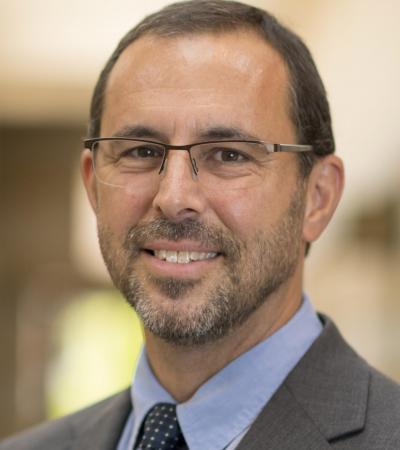Operationalizing the Common Good: A Symposium
The Center for Social Concerns and the Kellogg Institute for International Studies invite interested colleagues to participate in a symposium exploring the challenge of operationalizing "the common good," looking at ways to assess and measure achievements in this area. Please refer to the schedules below of the full-day symposium (by invitation) on Monday, October 22, and the half-day workshop (open to all) on Tuesday, October 23. To register for participation in all or part of the events, please complete this form by Wednesday, October 10. At the conclusion of the workshp, attendees are invited to attend a luncheon and lecture given by Flavio Comim entitled The Common Good and Rejection of the Poor (Aporophobia) at 12:30 pm in Hesburgh Center C103.
Questions on any of these events may be directed to Kellogg Faculty Fellow Clemens Sedmak.
Background
The common good enjoys a central place in development ethics as well as in classical and Christian social thought, it is a foundational principle of Catholic Social Teaching. However, there is a challenge with its operationalization; a joint research project on “developing indicators for the common good on the level of municipalities” with the newly founded Institute Promotor del Bien Común of UPAEP (Universidad Popular Autónoma del Estado de Puebla, a Catholic University), Mexico responds to this problem. In a series of research seminars, an international team of scholars is working on this endeavor to assess and measure the common good achieved and enjoyed by a local community. The project seeks to construct a series of indicators of the common good to measure development at the local level of municipality in cooperation with mayors from more than a hundred cities.
The project is on developing aims to do justice to the complexity of the common good. A common good approach focuses on groups or communities, and on the processes through which they achieve and maintain social goods. It understands these goods as irreducible social goods, i.e. goods ‘built on’ and ‘embedded in’ relationships. As Taylor argues, these are good that are immanent to the cooperation of people in a community; immanent to collective organization that allows the achievement of a social good; immanent to the shared understanding of their value.
Most development indicators rely on individual data, which leaves out of the picture the structural dimension of development, i.e. how a social environment shapes individual functioning or achievements. Moreover, many development indicators are keen to measure collective functionings through individual data (health, education, etc.). A growing literature argues therefore that we also need to include group or community data in order to grasp and measure ‘collective achievement’ of goods or service that are essentially ‘shared’ or ‘common’. Different approaches to development have advanced in this direction: social capital, public goods, commons, social rights, collective capabilities.
The research symposium will explore indicators for key dimensions of the common good together with colleagues from Mexico and Europe.
Monday, Oct 22 - by invitation (Geddes Hall Coffee House)
8:30-8:45am Gathering
8:45-9:00am Introduction
General challenges of Catholic Social Tradition-Principles and “Indicators” (Clemens Sedmak)
9:00-10:30am First Working Session
Recapturing the Common Good Pentagram (Mathias Nebel)
Indicators for Agency (Oscar Garza Vázquez)
11:00-12:30pm Second Working Session
Indicators for Humanity (Clemens Sedmak)
Indicators for Stability (Flavio Comim)
12:30-1:30pm Lunch
1:30-3:00pm Third Working Session
Indicators for Governance (Thomas Mustillo)
Indicators for Justice (Rodolfo de la Torre)
3:30-5:00pm Fourth Working Session
Applying the Pentagram to Family Dynamics (Jorge Medina)
Some Thoughts About the Pentagram (Patrick Riordan)
5:00-5:30pm Break with Snacks
5:30-7:00pm Fifth Working Session
Open Discussion of Indicators
7:30pm Dinner, The Morris Inn (Hesburgh Room)
Tuesday, Oct 23 - open to all (Geddes Hall Coffee House)
8:30-8:45am Gathering
8:45-9:00am Introduction
Introduction to the Project (Mathias Nebel, Clemens Sedmak)
9:00-10:15am Working Session
Mindanao: A Case Study (Patrick Riordan)
Applying the Pentagram to Higher Education (Gabriela Lechuga)
10:30-12:00pm Final Working Session and Closure
Applying the Pentagram to the Municipio of Atlixco, Edo Puebla (Valente Tallabs)
Applying the Pentagram to an Institution (Anna Blackman)
Concluding Discussion
At the conclusion of the Symposium, attendees are invited to attend a luncheon and lecture given by Dr. Flavio Comim entitled The Common Good and Rejection of the Poor (Aporophobia) at 12:30 pm in Hesburgh Center C103.
Clemens Sedmak
Clemens Sedmak is a professor of social ethics in the Keough School of Global Affairs and director of the Nanovic Institute for European Studies at the University of Notre Dame, where he is also an advisor in Catholic Social Tradition in the Center for Social Concerns and a Kellogg Institute for International Studies faculty fellow. He has been a Kellogg Institute faculty fellow since 2017...





